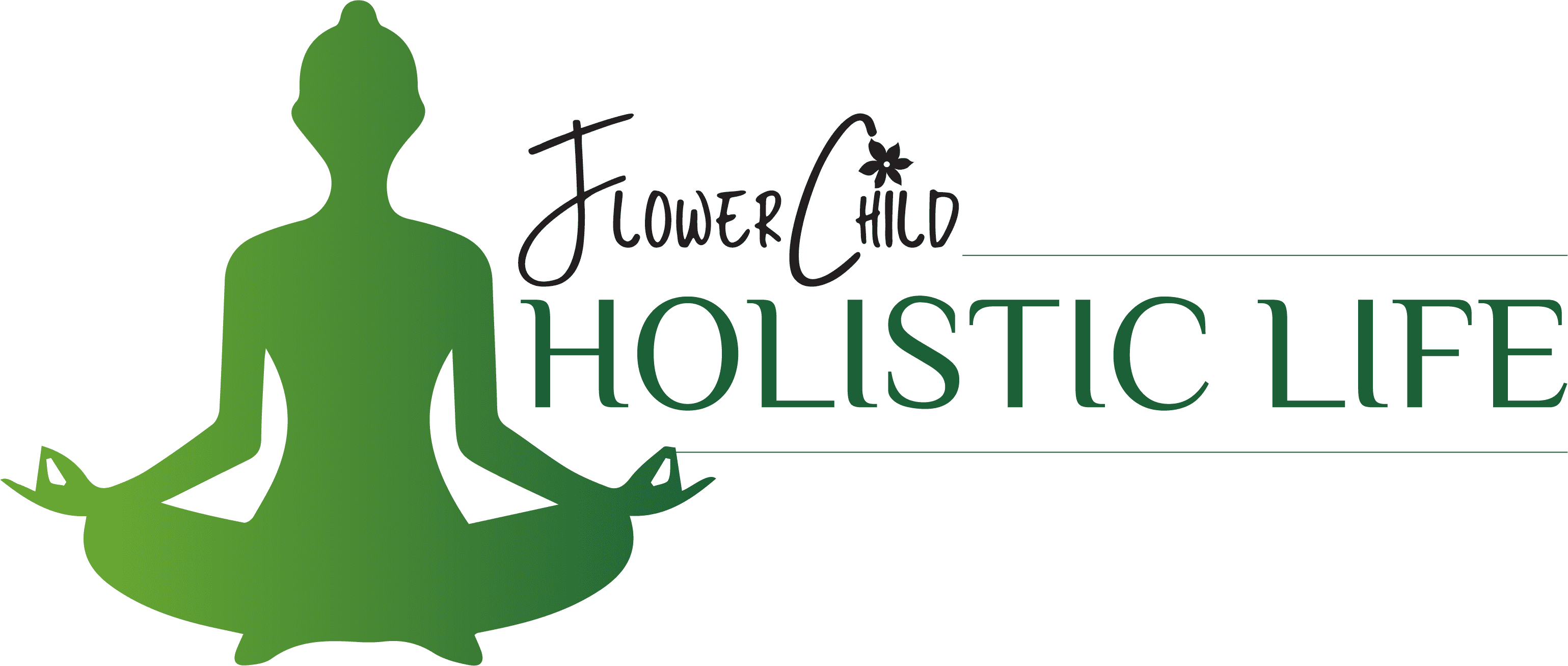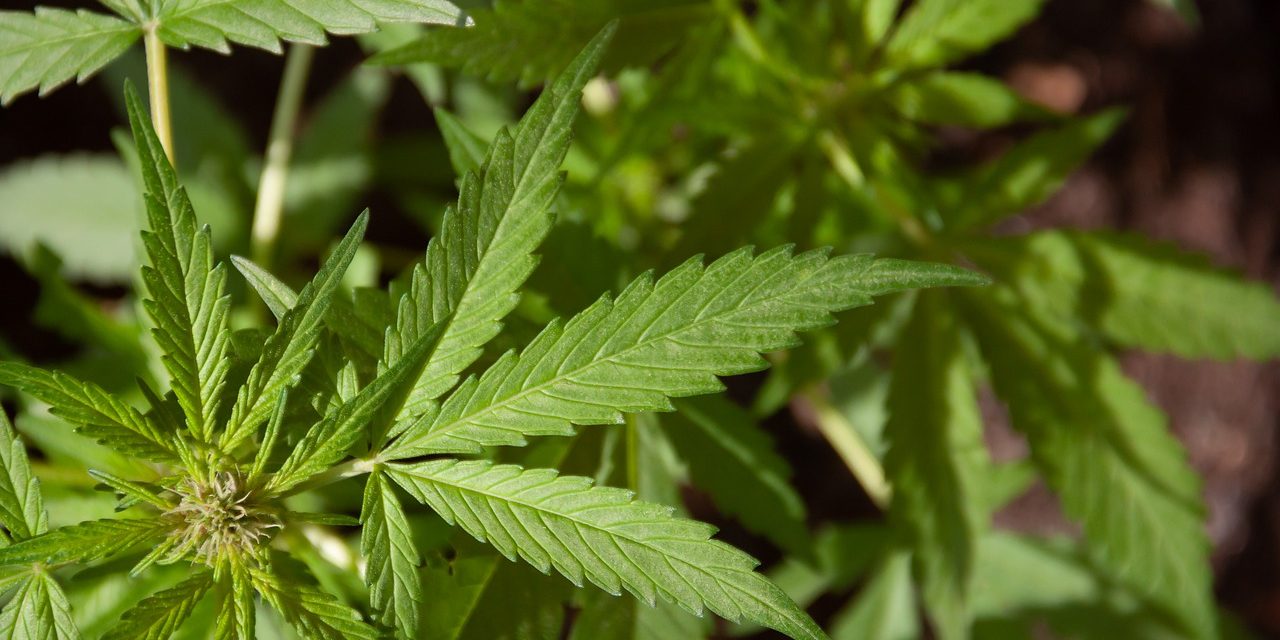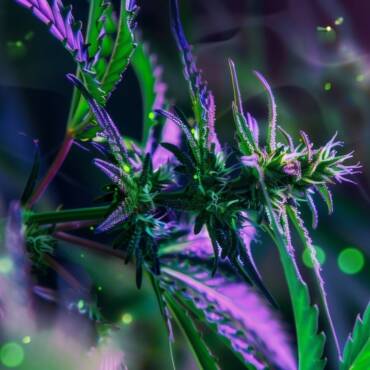Can CBD help with addiction recovery? With the rise of CBD’s popularity as a natural, safe, healthy medicinal plant, questions like this are common. It seems like CBD can help with just about everything, including depression, inflammation, insomnia, pain, and more. But what about addiction recovery?
The quick answer is: yes, CBD can help people overcome addiction. Studies suggest that CBD can help with opiate addiction, alcoholism, and prescription drugs.
Overcoming addiction is a challenge. Some people might be hesitant to try CBD for addiction recovery in fear of replacing one substance with another, and others might not think CBD is effective. In this article, I’ll address potential concerns and present scientific data regarding CBD and its efficacy for addiction recovery.
Addiction Statistics
Addiction is chronic and compulsive numbing. To escape uncomfortable feelings, people overeat, do drugs, drink alcohol, or even binge watch TV shows. Addiction can have severely negative effects on the body. Drugs and alcohol are, essentially, poisons. Addiction becomes a vicious cycle of taking a substance to avoid uncomfortable feelings, then feeling worse due to the effects of the poison. The body builds a tolerance, and addicts find themselves needing to take more of the substance to achieve the same effects. Dependence grows from there, and addiction sets in, making it difficult to quit.
Opiates
Since 1999, the rate of deaths caused by opiate overdose has quadrupled. The CDC reports that over 500,000 Americans died from opiate overdoses between 1999-2019. This includes prescription opioids, street drugs such as heroin, and synthetics like methadone and fentanyl. Opiates are used to relieve pain, which they do by interacting with nerve cells and receptors in the brain to block pain and produce feelings of pleasure. Because of this, they are highly addictive.
According to the American Society of Addiction Medicine, 4 out of 5 people who turn to heroin do so after first being prescribed opiates from a doctor. ASAM writes, “94% of respondents in a 2014 survey of people in treatment for opioid addiction said they chose to use heroin because prescription opioids were “far more expensive and harder to obtain.””
Although opiates relieve pain, they have a frightening array of side-effects. Other than addiction, which can lead to severe withdrawal symptoms, opioids can also cause long-term damage to the brain and body. A study by the National Library of Medicine states that common side effects are dizziness, vomiting, trouble breathing, sedation (losing awareness of one’s external surroundings), and constipation. Other side effects include damage to the digestive system, hormonal dysfunction, problems with the immune system, abnormally heightened sensitivity to pain, muscle rigidity, and involuntary muscle spasms. Opioid use can cause and/or worsen symptoms of depression, anxiety, bipolar disorder, and psychosis. Opiates contribute to memory loss, inability to make decisions, impaired concentration, sexual dysfunction, sleep problems, dry skin, and heart problems.
Alcohol
In 2019, over 14.5 million Americans ages 12 and older had an alcohol use disorder, according to the National Institute on Alcohol Abuse and Alcoholism. They quote that “the rate of all alcohol-related ED (Emergency Department) visits increased 47 percent between 2006 and 2014, which translates to an average annual increase of 210,000 alcohol-related ED visits.” According to the CDC, 1 in 10 adult deaths in the United States is caused by excessive drinking.
Alcohol impairs people’s sense of judgment, which leads to poor decision making, involvement in dangerous activities, and injuries. Motor vehicle accidents, falls, drowning, and burns are all more common while under the influence of alcohol. Drunkenness can also lead to violence, including domestic abuse, sexual assault, suicide, and homicide/murder. Alcohol poisoning, which results from high blood alcohol levels, can be a serious medical emergency and require hospitalization. Minor alcohol poisoning is common, often showing up as an extremely bad hangover with excessive vomiting.
Long-term effects from regular alcohol use includes high blood pressure, heart disease, stroke, liver disease, digestive problems, cancer, a weakened immune system, and memory problems, including dementia. Alcohol can cause and/or worsen symptoms of depression and anxiety, leading to problems with family, work, school, and friends. Drinking contributes to malnutrition and vitamin B1 deficiencies, which leads to fatigue, apathy, disorientation, and amnesia. Alcohol also causes sexual problems, nerve damage, and permanent damage to the brain. All in all, it’s a dangerous drink. Read more about the side effects on Alcohol.org.
How CBD Works
CBD works through the endocannabinoid system (ECS). The ECS is a cell signaling network inside all invertebrates, including humans. Its purpose is to regulate and keep the body’s various physiological processes in homeostasis (harmony/balance), which it does by creating endocannabinoids. Endo- means inside. Endocannabinoids are molecules made by your body, whereas cannabinoids such as CBD and CBG are phytocannabinoids, or plant-derived cannabinoids. The ECS uses cannabinoids as neurotransmitters: chemical messengers that send signals between nerve cells in the body. These signals tell your body how to manage pain, sleep, inflammation, mental processes, and even the immune system.
Medical News Today cites the US National Library of Medicine and writes:
“Research suggests the ECS may help regulate the function of the following:
- appetite and digestion
- sleep
- pain sensation
- inflammation and other immune responses
- mood
- metabolism
- learning and memory
- reproduction system function”
There are two known types of cannabinoid receptors in your body: CB1 and CB2. They are located on the surface of cells all throughout the body. CB1 receptors are mostly in the brain and spinal cord (central nervous system), while CB2 receptors are found in immune cells and the peripheral nervous system. Endocannabinoids attach to these receptors to relay information. Medical News Today explains, “Endocannabinoids may attach to either type of receptor, causing different results depending on the location of the receptor in the body. For example, endocannabinoids may target CB1 receptors in a spinal nerve to relieve pain or bind to a CB2 receptor in an immune cell, which signals that the body is experiencing inflammation.”
The ECS can become depleted due to chronic stress, environmental toxins, and unhealthy diet/lifestyle choices. When this happens, the body doesn’t create enough endocannabinoids to efficiently keep your body in homeostasis. Communication between the body’s processes is interrupted, which can lead to diseases, sleep problems, poor mental health, and chronic pain. Fortunately, we have phytocannabinoids to supplement with. CBD and CBG interact with the ECS the same way endocannabinoids do. They give your ECS a helping hand, and thereby help your body regulate itself better. This is why CBD can help with such a wide range of conditions!

How using CBD for addiction recovery helps
Using CBD for addiction recovery helps with cravings, stress, and healing. It’s especially good at this because it is non-intoxicating, and therefore does not produce a “high”. Without intoxicating effects, CBD is unlikely to trigger the desire for a stronger high (which can lead to cravings and relapse).
Scientific Studies on using CBD for addiction recovery
A study published in the American Journal of Psychiatry tested CBD against a placebo and found CBD to be highly effective at reducing opiate cravings. In the study, the facilitators exposed addicts to imagery of drugs and drug use in order to trigger cravings, then measured their response. Those who had taken the placebo showed increased levels of cortisol (the stress hormone), increased anxiety, and strong cravings. Those who had taken CBD had significantly lower levels of cortisol, anxiety, and cravings.
A different study, conducted by the Scripps Research Institute, found CBD to be effective at reducing relapse for drugs and alcohol. The study was conducted on rats who had a history of daily alcohol or cocaine self-administration. CBD gel was applied to their skin every day for a week. The results found that the rats getting CBD did not self-administer alcohol and cocaine as much and experienced reduced impulsiveness and anxiety. Incredibly, the effects of the CBD treatment lasted five months! Since the rats continued to experience reduced drug cravings for five months after only a week of CBD use, it was concluded that CBD definitely has the potential to help with addiction recovery.
CBD is currently being studied by The University of San Diego as a strategy to treat alcohol dependence. They write, “Preclinical studies showed that chronic CBD treatment decreased alcohol drinking and prevented the reinstatement of alcohol seeking that was induced by environmental cues and stress”.
A 2015 study published by “Substance Abuse: Research and Treatment” found CBD to be helpful with recovery from nicotine, cocaine, opiate, and psychostimulant addiction. This paragraph in the study’s conclusion summarizes their findings nicely:
“CBD is an exogenous cannabinoid that acts on several neurotransmission systems involved in addiction. Animal studies have shown the possible effects of CBD on opioid and psychostimulant addiction, while human studies presented some preliminary evidence of a beneficial impact of CBD on cannabis and tobacco dependence. CBD has several therapeutic properties on its own that could indirectly be useful in the treatment of addiction disorders, such as its protective effect on stress vulnerability and neurotoxicity.”
Finding CBD for addiction recovery
Now that you know CBD can help with addiction recovery, the next step is finding a quality CBD oil. The market is flooded with low-quality, sub-par options, so it’s important to know how to avoid those. For example, those bottles labeled as “hemp oil, 100,000mg” that you see all over huge online marketplaces often have NO CBD in them at all. Or they might only have a trace amount of CBD in them—enough for the seller to write “CBD” on the label, but not enough for it to actually do anything. Those products are made from oil extracted from hemp seeds. They’re high in Omega 3’s, but that’s about it. Hemp seed oil is basically the same as flax seed oil, or fish oil, or any other Omega 3 supplement. Hemp oil is not the same as CBD oil. CBD is extracted from the flower of the hemp plant, not the seeds.
When looking for a CBD product, be sure to note the amount of actual CBD in the bottle. Any company making high-quality CBD products will have this information on the label. It’s usually measured in milligrams — for example, 700mg CBD/1oz bottle.
We also recommend looking for full-spectrum, whole-plant hemp products. Full-spectrum means that the product contains the full spectrum of cannabinoids natural to the plant, including trace amounts of other cannabinoids such as CBG, CBC, and THC. Broad-spectrum, on the other hand, usually has the THC removed. Full-spectrum oils tend to work much better than broad-spectrum or limited spectrum because they are closest to their natural form. Whole-plant products take this one step further by keeping the chlorophyll, flavonoids, terpenes, and other plant compounds in the final product. When these compounds are kept intact, the CBD oil is as close to nature as possible and is much more effective (this is called the entourage effect). All the plant’s natural compounds work together to help your body heal itself. Removing them detracts from their healing potential, but most big companies remove them anyway so they can control taste, smell, and appearance better.
What about CBG?
We’ve talked a lot about CBD in this article, but what about CBG? Cannabigerol is a cannabinoid that’s similar to CBD but often more potent. It’s showing great promise at helping with mental health, and therefore can also be used to help with addiction recovery. CBG is a powerful neuroprotectant, which means it protects the neurons in your brain, as explored in the 2015 journal Neurotherapeutics. The study found CBG to be effective at helping against neurodegenerative diseases like Huntington’s. Customer feedback has also shown CBG to be extremely beneficial for helping with anxiety, depression, and focus. Since anxiety, depression, and mental health in general are often triggers for addiction, CBG has the potential to help greatly. It hasn’t been in the spotlight for as long as CBD, so there are fewer scientific studies published, but many organizations are currently studying it.
FlowerChild makes some of the strongest CBG oils available. Our CBG 1400 is very popular and has great reviews — check them out!
Conclusion
CBD helps with addiction recovery by interacting with your body’s ECS to reduce stress, reduce cravings, and help your body function in a more balanced way. Several scientific studies have explored CBD’s effectiveness at helping with addiction recovery and found it to be beneficial. CBG, cannabigerol, can also help with addiction recovery by improving mental health. It’s important to select high quality hemp oils; we recommend full-spectrum, whole-plant products.
FlowerChild offers a whole line of top-quality CBD and CBG products. We have CBD oils available in 350mg/bottle, 700mg/bottle, and 1400mg/bottle. We have CBG oils available in the same strengths. We also have Blend oils, which contain half CBD and half CBG, in 700mg and 1400mg bottles. All of our products are whole-plant, full-spectrum, and produced in small batches. We’re family owned and operated and always happy to answer questions by email or phone.
Thanks for reading!
Shop Now

Follow us on Instagram and Facebook:
@flowerchildcbd






